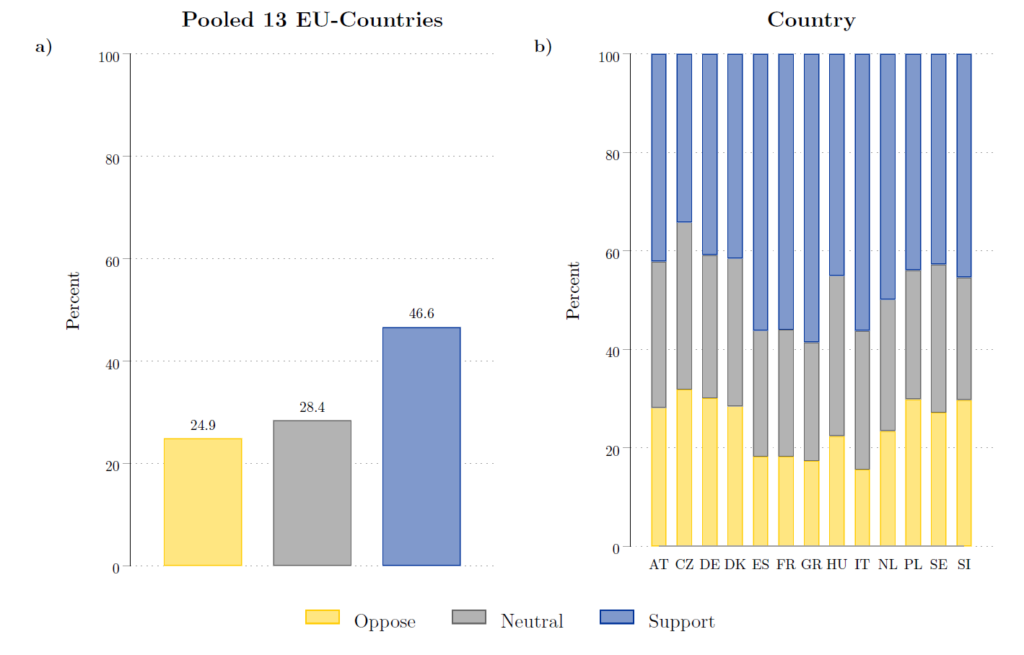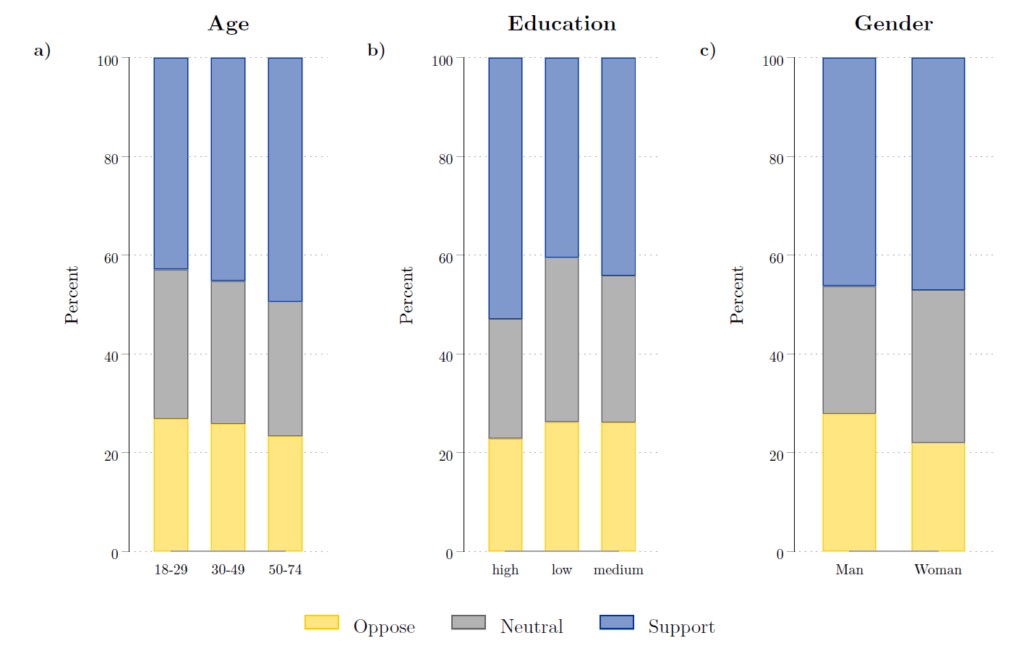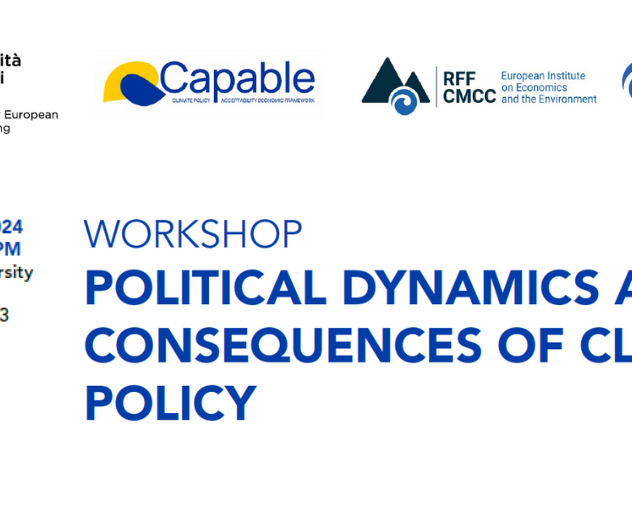
Fossil Fuel Advertising Bans Are Broadly Supported Across Europe
EU policies aimed at reducing greenhouse gas emissions may face significant hurdles due to a lack of public support or pushback from citizens. As part of our CAPABLE project, we are investigating which kinds of policies are acceptable to people across the EU—and which ones are not.
In the summer of 2024, we conducted a large-scale survey of 19,328 individuals across 13 EU Member States (Austria, Czechia, Germany, Denmark, Spain, France, Greece, Hungary, Italy, the Netherlands, Poland, Sweden, and Slovenia). These countries represent approximately 83% of the EU-27 population, providing rich insights into public opinion on climate change policies across Europe.
One of the standout findings from our survey is the widespread support for banning fossil fuel advertisements in public spaces across EU Member States, such as ads for flights and fossil fuel-powered vehicles. Across all 13 countries, nearly half (46.6%) of respondents expressed support for such bans, compared to just 24.9% who opposed them.

Responses from CAPABLE Survey of 13 EU countries with a total of n = 19,328, fielded in June-August, 2024:
Austria, Czechia, Germany, Denmark, Spain, France, Greece, Hungary, Italy, Netherlands, Poland, Sweden and Slovenia .
Support outpaced opposition consistent in every country surveyed, with the highest levels of people being in favour of the advertising ban were found in Greece, Italy, France, and Spain. Looking at socio-demographic characteristics, we find that support for the advertising ban across the EU remains higher than opposition for every age group and level of educational attainment. Further, high levels of support remains consistent across gender identity.

Responses from CAPABLE Survey of 13 EU countries with a total of n = 19,328, fielded in June-August, 2024:
Austria, Czechia, Germany, Denmark, Spain, France, Greece, Hungary, Italy, Netherlands, Poland, Sweden and Slovenia .
The significant support for advertising bans likely stems from the nature of these policies. Unlike measures that impose new taxes or mandate behavioural or production changes, advertising bans primarily target the consumer information environment. They are relatively easy to implement and entail limited direct costs for governments or consumers, making them an attractive policy option.
Fossil fuel advertising bans could serve as a low-hanging fruit in climate policy
Given these findings, fossil fuel advertising bans could serve as a “low-hanging fruit” in climate policy. They are less likely to provoke widespread public backlash and may be a feasible starting point for broader policy packages. For example, such bans could be introduced early in a policy sequencing strategy, reshaping the public information environment and paving the way for more robust and directly impactful measures later. By de-normalizing the fossil fuel consumption, these initial steps could help build public acceptance for policies with greater economic or behavioural impacts.
In a new commentary “Fossil-Fuel Advertising Ban as a Catalyst for Global Change” appearing in Nature Climate Change (https://doi.org/10.1038/s41558-025-02267-4), Thijs Bouman (RUG) and E. Keith Smith (ETH Zurich) examine the implications of fossil fuel bans both within the Netherlands, and the potential to spread to other similar locales worldwide.
We will soon be sharing our first results of the overall findings from this survey within the CAPABLE project team’s working paper “Six Faces of Climate Policy Support in the EU”. We look forward to sharing these exciting results soon!
References and notes
- “Fossil-Fuel Advertising Ban as a Catalyst for Global Change” in Nature Climate Change (https://doi.org/10.1038/s41558-025-02267-4).
- Country-level aggregated survey data presented in this blog is available on Zenodo: https://doi.org/10.5281/zenodo.14989004
- This commentary and the survey collection are supported by the European Union under the Horizon program (CAPABLE project—Grant No. 101056891). The views and opinions expressed are however those of the authors only. Data collection in the Czech Republic was carried out within SEEPIA project that received a support from the Technology Agency of the Czech Republic, grant number SS04030013 “SEEPIA: Center for Socio-Economic Research on Environmental Policy Impact Assessment.”








